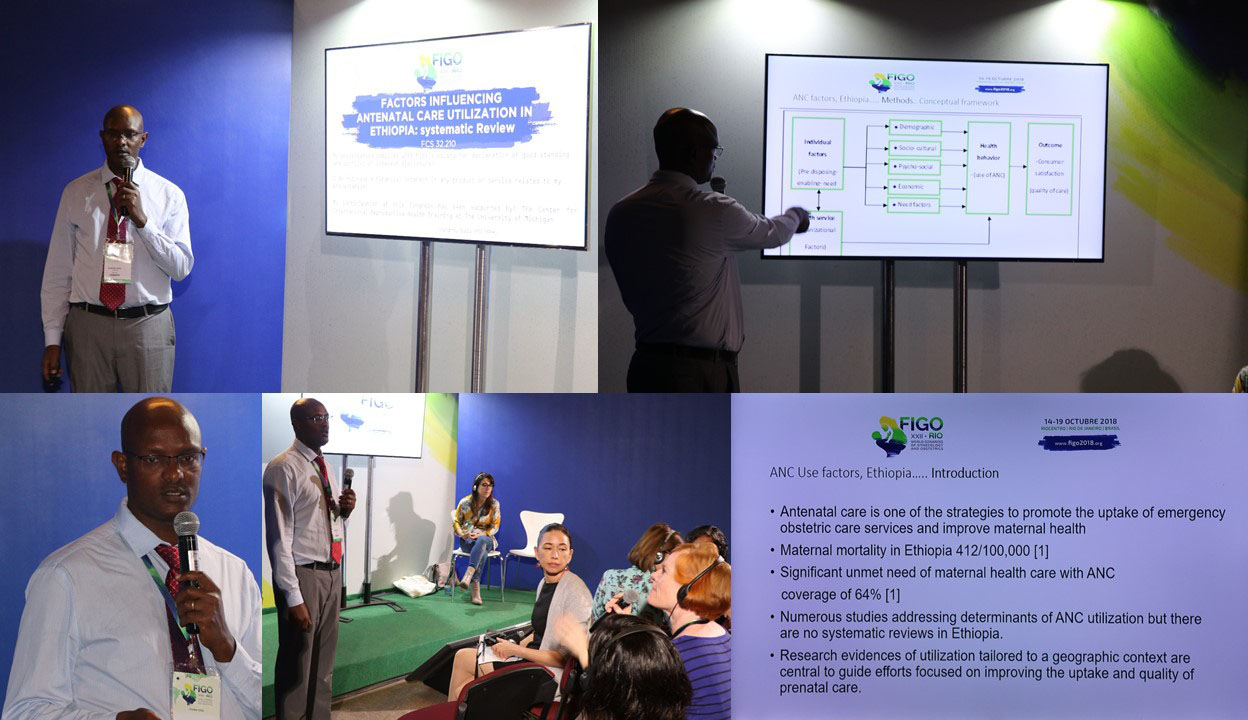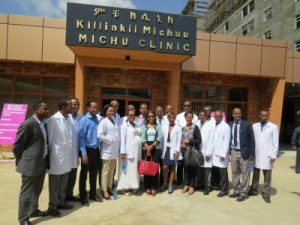Factors Influencing Antenatal Care Utilization in Ethiopia: A Systematic Review

DOI: 10.1002/ijgo.12582 FCS210
Wondimu Gudu
Saint Paul’s Hospital Millennium Medical College, Addis Ababa, Ethiopia
Objectives: Synthesize evidence on factors influencing ANC utilization in Ethiopia.
Method: Electronic search for relevant studies between 1992 and 2015 was made. Articles were filtered and selection was made based on criteria for quality assessment. Both qualitative and quantitative studies were included. Identified factors were thematically categorized using a unique conceptual framework developed based on concepts both from Andersons’ model and bio-behavioral modeling in health care utilization.
Results: Twenty five studies reviewed. Maternal education, residence, income, husband’s approval, media exposure, pregnancy intention and previous bad obstetric history and distance of health facility were major factors affecting ANC use. Most studies lack standardized outcome measures. Other important individual factors such as women’s autonomy, cultural beliefs, social networks and health facility factors such as quality, waiting time, and service fee were not addressed. No study identified consumer satisfaction as a factor affecting ANC use.
Conclusions: Comprehensive data on factors influencing ANC utilization is lacking in Ethiopia. The measurement of ANC utilization should be standardized and factors should be segregated into those influencing initiation verses adequate use of ANC. Programs intended to improve ANC utilization should focus on women’s education; promote planned pregnancy; target the underprivileged and expand their scope to involve partners in ANC provision.







